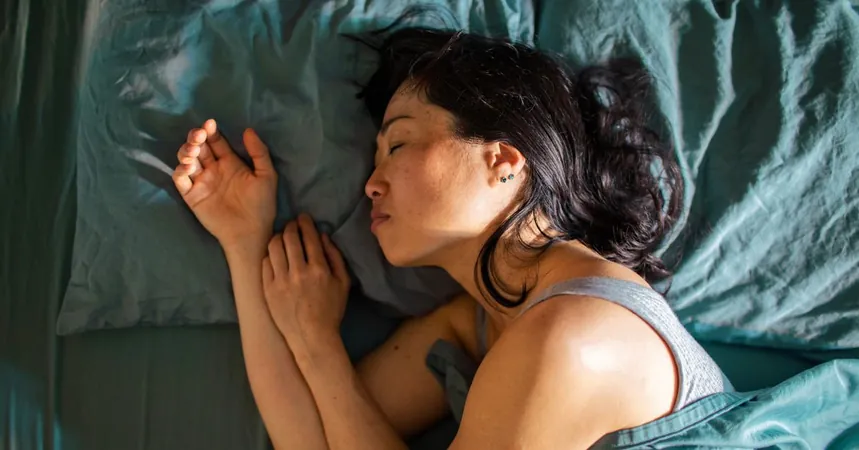
Unlocking Better Sleep: Can Cannabis Be Your Nighttime Savior?
2025-09-02
Author: Li
In a groundbreaking new study, researchers have found that regular cannabis consumption can significantly improve sleep quality for those battling insomnia. Imagine trading restless nights for peaceful slumber simply by incorporating cannabis into your routine!
Participants in this 18-month trial—comprised of 124 individuals diagnosed with primary insomnia—reported not just better sleep but also noticeable improvements in anxiety, depression, and pain levels. But, hold on! Experts do warn that building a tolerance to cannabis can diminish its long-term effectiveness as a sleep aid.
The Mechanics of Cannabis and Sleep
The study revealed that daily use of cannabis, particularly in oil or dried flower forms, resulted in a significant decrease in insomnia symptoms. Published on August 27 in PLOS Mental Health, the study aligns with growing interest in the potential benefits of tetrahydrocannabinol (THC)—the psychoactive compound in cannabis.
While a staggering 10% to 30% of people struggle with sleep issues, traditional medical solutions often come with side effects and dependency risks. Cannabis, with its enticing promise, appears as a more appealing alternative.
What the Participants Experienced
Throughout the study, the participants expressed that cannabis had a profound impact on their ability to sleep. Although the relief was most significant during the first month, many reported ongoing benefits—albeit reduced—by the trial's end.
Interestingly, therapists like Eliana Bonaguro highlight how cannabis can quiet racing thoughts that often plague those with anxiety and depression, making it easier for them to drift off.
Caution on Chronic Use
Despite these promising findings, the conversation around cannabis isn’t all rosy. Leading experts like Dr. Ruchir Patel underline the lack of sufficient evidence supporting cannabinoids as routine treatments for insomnia. He emphasizes that cognitive behavioral therapy (CBT) remains the gold standard for treating sleep disorders.
The downside? As participants consume cannabis over time, they may develop a tolerance. This means needing more to achieve the same effect, which could lead to increased risks of dependency and adverse health outcomes.
The Big Picture: A Double-Edged Sword
While cannabis demonstrates a potential path to better sleep, it's not without its downsides. Heavy usage can lead to issues such as cardiovascular risks, and some evidence suggests it may disrupt the all-important REM sleep, impacting dreams.
As Bonaguro points out, many users report difficulty remembering their dreams, likely due to THC’s effect on REM cycles.
What’s Next?
With all this in mind, the study's authors call for further randomized controlled trials to unravel the complexities of cannabis use for insomnia. Could it hold the key to a better night’s sleep, or will caution win the day? Only time—and more research—will tell.




 Brasil (PT)
Brasil (PT)
 Canada (EN)
Canada (EN)
 Chile (ES)
Chile (ES)
 Česko (CS)
Česko (CS)
 대한민국 (KO)
대한민국 (KO)
 España (ES)
España (ES)
 France (FR)
France (FR)
 Hong Kong (EN)
Hong Kong (EN)
 Italia (IT)
Italia (IT)
 日本 (JA)
日本 (JA)
 Magyarország (HU)
Magyarország (HU)
 Norge (NO)
Norge (NO)
 Polska (PL)
Polska (PL)
 Schweiz (DE)
Schweiz (DE)
 Singapore (EN)
Singapore (EN)
 Sverige (SV)
Sverige (SV)
 Suomi (FI)
Suomi (FI)
 Türkiye (TR)
Türkiye (TR)
 الإمارات العربية المتحدة (AR)
الإمارات العربية المتحدة (AR)